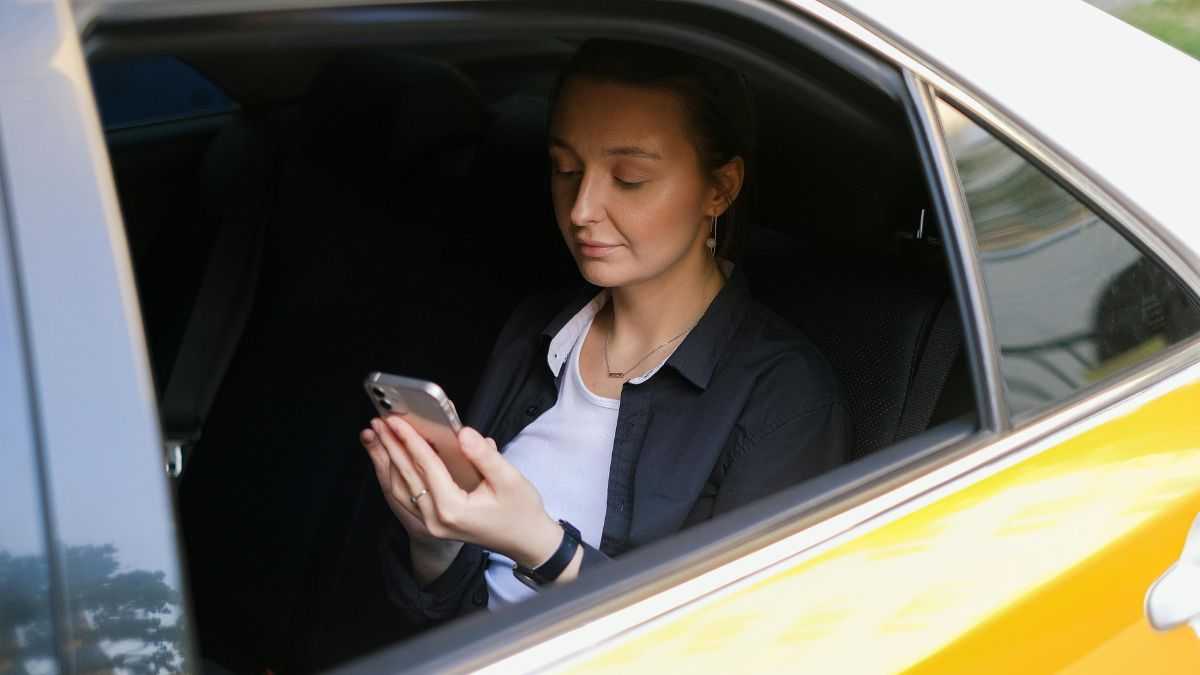Truth & Goodness
Poison on a Plate: What Drives Us to Eat Dangerously?
01 March 2026

Bolt is encouraging drivers to record passengers during rides. The problem is that the footage goes directly to drivers — with no oversight at all. This raises serious questions about privacy and passenger safety, and for women it may mean a particular risk of abuse.
Private ride-hailing companies are constantly seeking ways to improve safety — both for customers and drivers. Each firm develops its own solutions.
In Poland, Bolt has begun encouraging drivers to record passengers during rides. Similar pilot programs have also appeared in other countries: in Kenya and Nigeria, for example, Bolt has launched an in-app dash cam that turns smartphones into recording devices. These projects are promoted as safety measures, but — just as in Poland — they raise serious concerns about who controls the footage and how it may ultimately be used.
In theory, this sounds like an added layer of security. In practice, it could mean a real threat to passengers — particularly young women. Why?
All responsibility for the recordings, and what happens to them, rests solely with the drivers, not the company. It is the driver who records, stores, and ensures compliance with data protection rules. It is also the driver who must “make sure” the footage doesn’t fall into the wrong hands.
Bolt provides no guarantee that these rules will be respected. Passengers are supposed to be informed — by the driver, often a foreigner — that the ride will be recorded. If they refuse, they can do nothing more than cancel the trip free of charge.
“Bolt does not have access to footage from the car camera, does not store it, and does not manage it. Only the driver has access to recordings saved in the Driver Dash Cam app,” the company explains on its website.
In the case of a dishonest driver, this setup could pose a serious risk to passenger safety — especially for women.
You might like to read: A Prison by Any Other Name. When Care Quietly Becomes Control
Recordings and still images of female passengers, especially young women, could be dangerous. Many return home late at night from parties, dressed boldly, and often in varying states of mind. In such situations, it is easy to capture material that could later be misused — for blackmail or for posting on shady websites.
There is also the risk of images being sold, exposing women to moral harm. In addition, the system records all conversations inside the car, capturing sensitive data — whether passengers talk directly to each other or over the phone.
Recording passengers comes with another risk. Even if a driver does not share the data, hackers might. The danger grows if drivers store footage in the cloud. In such cases, recordings and conversations could end up online or on social media, leading to manipulation or reputational damage for those filmed.
We asked Bolt for comment. According to Paweł Kuncicki, General Manager of Bolt in Poland, the idea came from the company but is only a suggestion, not an obligation, for drivers. However, Bolt did not clear up the doubts, instead repeating that responsibility rests entirely with drivers.
“A car camera is an option that Bolt’s partner drivers may consider to improve their safety. This solution is fully provided by an external company. As a platform, Bolt offers drivers various benefits and solutions based on their most common requests,” reads the company’s statement sent to Holistic News.
Kuncicki added: “Drivers who choose to use this solution also take on specific obligations. First, every passenger must be informed before the ride begins that the car camera will be on. Second, the driver is the sole owner of the footage and is responsible for using it only in necessary situations, such as police investigations after an accident.”

To shed light on the privacy concerns, we asked Monika Danek, attorney-at-law and Data Protection Officer, for an expert opinion.
According to Danek, drivers who install cameras in their cars become data controllers under GDPR. This means they are obliged to process recordings only for specified, lawful purposes — generally for safety. If the ride is uneventful, passengers have the right to demand deletion of their footage. Drivers must comply, unless there are exceptional circumstances, such as needing evidence of aggression or a payment dispute.
Similar dash cam initiatives by Bolt have also been introduced outside Poland, for example in Kenya and Nigeria, where drivers are likewise responsible for storing and managing the footage themselves..
“The driver is the data controller, but the passenger retains full rights to their personal data. The data never ‘belongs’ to the driver. A passenger has the right to access their data and to demand its deletion. A driver cannot arbitrarily deny this,” Danek explains.
In practice, this also means that passengers may request access to their recording. The driver must provide it in a way that does not violate the rights of others — for example, by anonymizing fellow passengers.
Using recordings for purposes other than those stated — such as posting them online — is illegal and exposes the driver to multiple levels of liability:
Filming without informing passengers already violates GDPR and their personal rights. Recording audio — private conversations — is an even more serious intrusion. Under Poland’s Criminal Code (Article 267), illegal recording and storing of conversations may be punished with up to two years in prison.
Uber recently introduced an option for passengers to record audio during rides. In case of incidents, the recording goes directly to Uber’s safety team for review. Uber drivers may also record video with dashcams — but only with passengers’ consent.
Other ride-hailing companies in Poland, like iTaxi and Free Now, do not allow either drivers or passengers to record rides.
Outside Poland, Bolt has also launched dash cam initiatives. In Kenya and Nigeria, the company rolled out an in-app dash cam that turns smartphones into recording devices, with drivers responsible for storing the footage, often in cloud services. These programs are presented as optional safety tools for drivers.
Read the original article: Kierowcy Bolta będą filmować pasażerów. Gdzie trafią nagrania kobiet?

Truth & Goodness
01 March 2026


Zmień tryb na ciemny